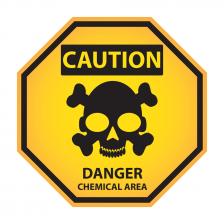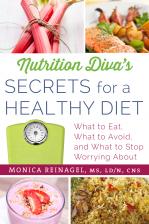Are Food Additives Making Us Fat?
New research shows that common food additives may not be as harmless as we thought. Nutrition Diva explains how the latest research in microbiology is changing the way we think about nutrition and health.
Monica Reinagel, MS, LD/N, CNS
Listen
Are Food Additives Making Us Fat?

“What should we do about emulsifiers?” wrote Robert, sounding just a wee bit panicked. “I don’t know where to begin!”
For those of you who may have missed the headlines, researchers found that two compounds that are widely in food processing caused weight gain, blood sugar problems, and inflammatory bowel disease in mice.
A couple of qualifiers are in order. The mice were fed very large quantities of the additives – much more than you would ever be exposed to, even on a diet composed entirely of processed foods. And the only mice that developed inflammatory bowel disease were mice that are genetically predisposed to that condition. This study did not find evidence that these additives are causing weight gain or disease in humans. Nonetheless, the headlines definitely sent a lot of people scrambling to their fridges and pantries to scan labels.
Are These Additives in Your Cupboard?
The two compounds used in the recent study, carboxymethylcellulose and polysorbate-80, are both emulsifiers. There are at least a dozen other emulsifiers used in food processing and I bet the scientists could have produced similar results from any of them – these just happened to be the two they focused on.
Emulsifiers are used in all kinds of processed foods, such as yogurt, ice cream, and salad dressing, to enhance the texture and keep ingredients from separating in the container. And for decades they’ve enjoyed “GRAS” status – ingredients that are generally recognized as safe when used in prescribed amounts.

This isn’t the first time that supposedly safe ingredients have come under fire. Health-conscious consumers have long been wary of the synthetic chemicals that sustain the processed food industry. Many parents, for example, worry that food dyes may contribute to ADHD. There was the whole kerfuffle last year over yoga mat chemicals in bread.
For me, what’s really newsworthy about this study is that the researchers were able to tie these effects to changes in the gut bacteria of the mice. Eating the additives altered the intestinal bacteria in the mice, which in turn caused the weight gain, blood sugar issues and inflammation. How do they know? Because when they fed the additives to special mice that had no bacteria in their intestines, they didn’t cause the same problems.
Gut Biology Is Changing the Way We Think About Nutrition
The science of nutrition is undergoing a massive sea change. We used to think about food and nutrients in terms of how they affected our cells and organs. But it’s becoming increasingly clear that we’re not just feeding ourselves; we’re also feeding the massive bacterial ecosystem in our guts. What we eat affects the health and diversity of our bacterial population. And the health and diversity of that bacterial population affects our cells and organs in ways we are only beginning to glimpse.
There may not be much difference, nutritionally speaking, between foods made with and without these additives, and we may feel just fine after eating them. But our gut bacteria may not feel fine.
The recent findings on artificial sweeteners are another example of this phenomenon. For decades, we were convinced that zero-calorie sweeteners could help us lose weight by reducing our calorie intake. Now it turns out that some artificial sweeteners, despite being calorie free, might promote weight gain by altering the bacterial population of our guts.
See also: Artificial Sweeteners and Weight Gain: Mystery Solved?
Our dawning awareness of the gut microbiome is going to change the way we research nutrition. We’ve spent the last hundred years investigating how various foods and nutrients affect our biochemistry and cell function. We’re probably going to spend the next hundred years investigating how the foods we eat affect our bacterial tenants.
What to Do Now?

I don’t think they are responsible for the obesity epidemic.
But this latest research gives us one more reason to try to eat less processed food and more whole or minimally processed food. If you are in the habit of choosing products that have short, recognizable ingredient lists (or no ingredient list at all!), you probably don’t have a whole lot of these ingredients in your kitchen.
See also: Processed Foods: How Much Is Too Much?
A search through my own kitchen cupboard turned up only two products containing polysorbate-80: mustard and pickle relish. And for what it’s worth, I did not throw them away. I just don’t use them that often. But when it’s time to replace them, I will look for brands without these additives.

Want to make sure that you avoid potentially harmful chemicals in your food? Check out my book Nutrition Diva’s Secrets for a Healthy Diet for tons of easy tips and tricks to make tasty and nutritious foods for your family.
Vending machine image courtesy of Lissandra Melo/Shutterstock.com

